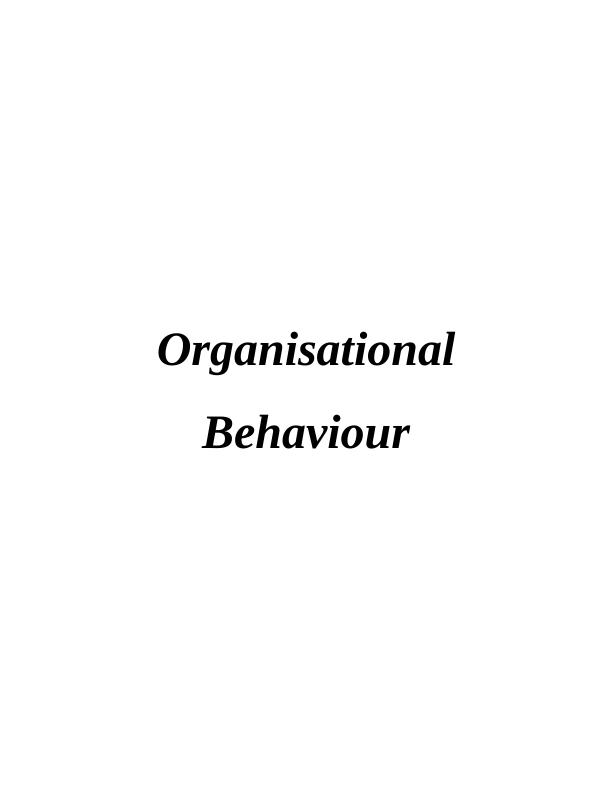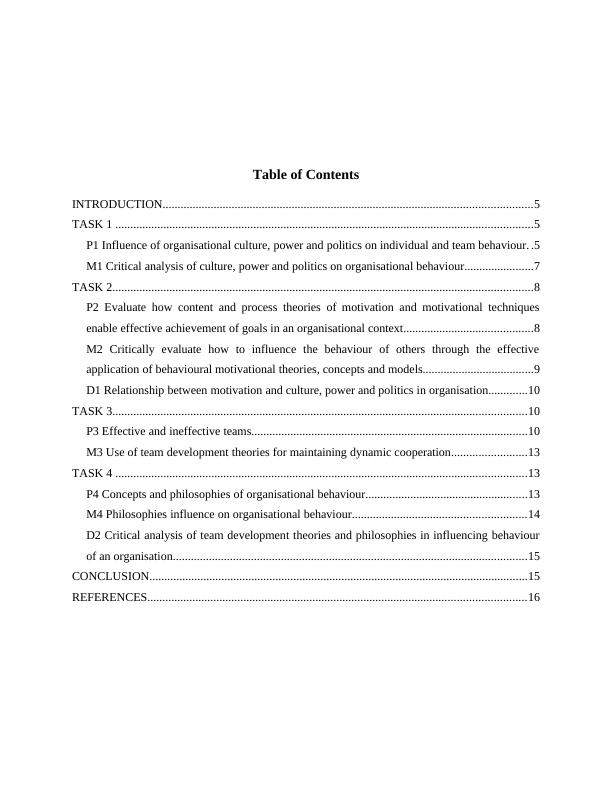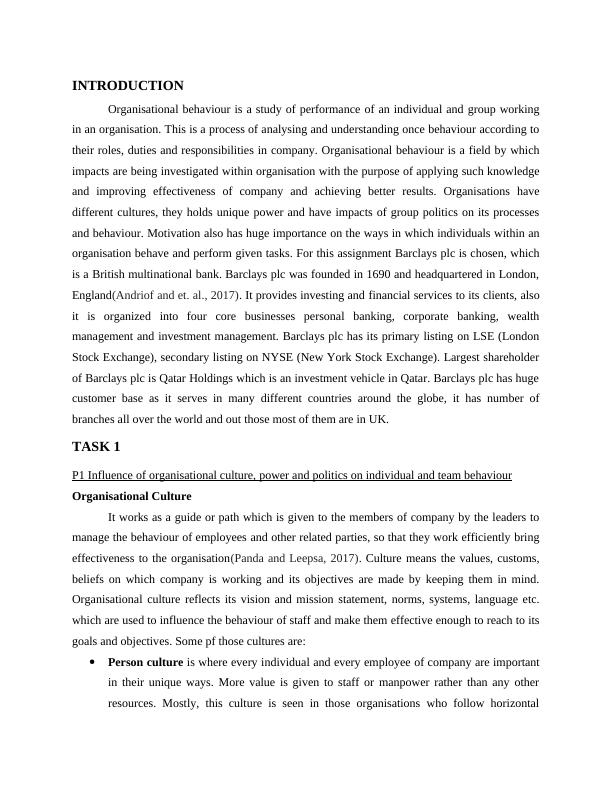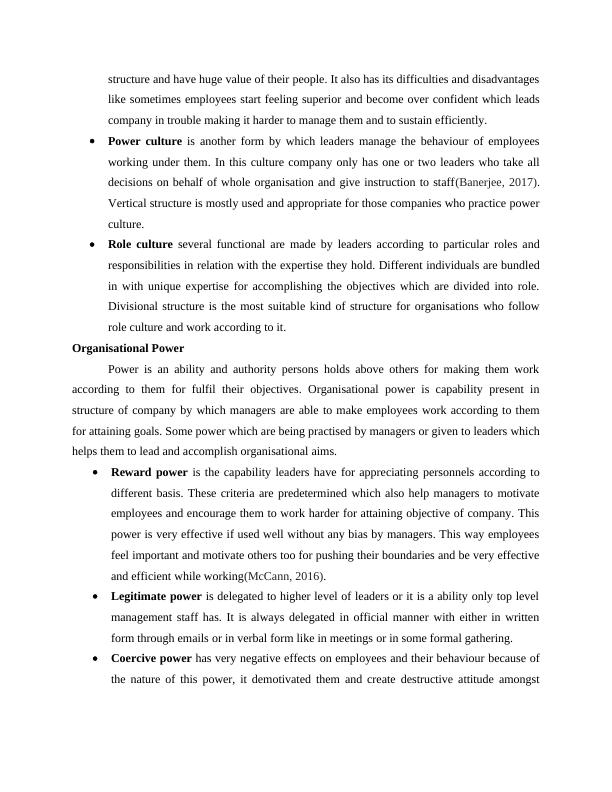Influence of Organisational Culture, Power and Politics on Behaviour
15 Pages5231 Words23 Views
Added on 2023-01-18
About This Document
This document discusses the influence of organisational culture, power, and politics on individual and team behaviour. It explores different types of organisational cultures, the power dynamics within an organisation, and the role of politics in shaping behaviour. The document also evaluates how content and process theories of motivation enable effective goal achievement in an organisational context. It critically evaluates the application of behavioural motivational theories, concepts, and models to influence the behaviour of others. The relationship between motivation and culture, power, and politics in an organisation is also examined.
Influence of Organisational Culture, Power and Politics on Behaviour
Added on 2023-01-18
ShareRelated Documents
End of preview
Want to access all the pages? Upload your documents or become a member.
Influence of Organisational Culture, Power and Politics on Individual and Team Performance
|19
|5574
|74
Influence of Organisational Culture, Power, and Politics on Behaviour and Performance
|15
|5369
|58
Organisational Behaviour: Impact of Culture, Politics, and Motivation Theories on Individual and Team Performance
|19
|6626
|74
Organisational Behaviour Notes PDF
|17
|5049
|206
Organization Behaviour.
|16
|5281
|31
How an organisation's culture, politics and power influence individual and team behaviour performances
|17
|5461
|289




